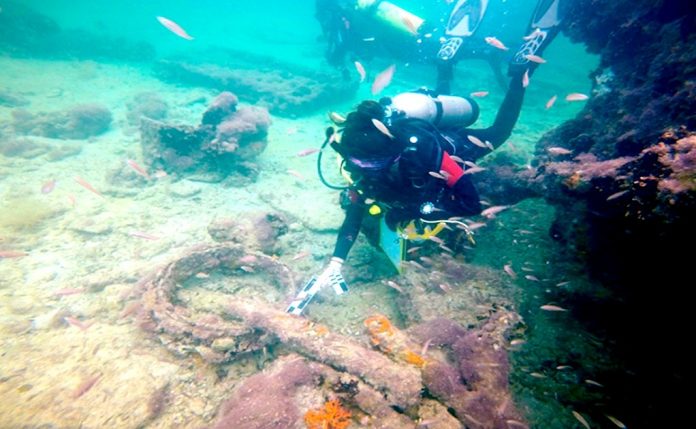Researchers have made a first of its kind discovery after identifying a submerged Mayan slave ship off the coast of Mexico.
The ship was first discovered in 2017, but through thorough research, scientists have only been able to identify its true purpose now.
The wreckage was of a Cuban-based paddle-wheel steamboat, and scientists from Mexico’s National Institute of Anthropology and History believe it was called “La Unión”.
La Unión was used to take captured Mayas to Cuba during ‘The War of the Castes’, which lasted from 1847 to 1901, which saw the native Maya people of the Yucatán Peninsula rebel against the oppressive European descendent rulers.
At the time, slavery was illegal in Mexico, but operators captured combatants or manipulated them into signing on as contract workers, mainly for Cuba, where they were then void of all rights and basically treated as slaves.
La Unión was on its way to Cuba when its boilers exploded off the coast of Sisal, in the Yucatán Peninsula, Mexico.
The research team were able to identify the fateful ship based on the physical remains of the wooden-hulled side-wheeler, whose timbers bore signs of fire and whose boilers had exploded.
Silverware also found in the ship also contained the emblem of the company which operated the ship.
The location of the ship also coincides with personal accounts of the disaster, which have been passed down through the generations, according to archaeologist Helena Barba Meinecke.
She said: “The grandparents and great-grandparents of the inhabitants of Sisal told them about a steam ship that took away Mayas during the War of the Caste.
“And one of the people in Sisal who saw how they led the Mayas away as slaves, told his son and then he told his grandson, and it was that person who led us to the general area of the shipwreck.”
When in Cuba, Ms Barba Meinecke said: “Each slave was sold to a middleman for 25 pesos, and they resold them in Havana for as much as 160 pesos, for men, and 120 pesos for women.”
However, it is unclear if there were any Mayas on the boat, as they would have been listed as ‘cargo’, rather than as people to hide away the illegality of the practice.





























